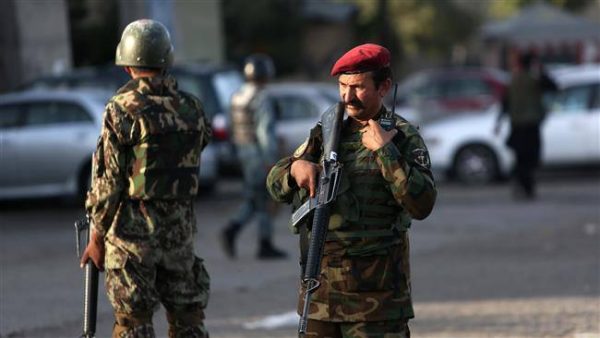We live in a busy world with a lot of information being thrown at you. Don’t feel overwhelmed. OpsLens will give you a weekly briefing on the major stories you need to know about and cut out all the extra information that isn’t important.
Here’s your weekly briefing on what’s going on in national security and military news.
Taliban Overrun Afghan City
The Taliban announced the beginning of their spring offensive in April and the city of Farah in western Afghanistan has been their primary target in the latest round of attacks.
They abandoned their effort to take over the city on Wednesday, but not before heavy fighting claimed the lives of at least 25 members of Afghanistan’s security forces and 5 civilians. Hundreds of insurgents are believed to have been killed during the assault on Farah.
United States Army Special Forces, backed by air support from A-10 Warthogs and unmanned aerial vehicles (UAVs), were sent to Farah to assist Afghan security forces in holding back the Taliban assault.
Insurgents now control at least 14 of Afghanistan’s 407 districts, with many others under heavy Taliban influence. Two more districts fell this week and at least 200 Afghan police officers and soldiers have been killed in the fighting this week.

Soldiers Top Marines at Sniper Course
Two United States Army snipers attended the Marine Corps Scout Sniper Basic Course at Camp Geiger, North Carolina last month. Sergeant Clinton Scanlon and Sergeant Bryce Fox, both from the 82nd Airborne Division, won top honors at the course. Sgt. Scanlon took sniper high honors and Sgt. Fox won stalker high honors.
The pair did have a leg up on the Marines attending the course, as they had already graduated from the Army’s sniper course. The fundamentals in the two courses are the same: scouting, stalking, shooting.
Note: The Marines still use the M40A6 rifle while Army snipers use the M2010.

Report Released on Deadly Niger Ambush
An unclassified eight-page summary of the 6,300-page investigation into the October 2017 ambush that killed four American soldiers in Niger was released Thursday.
Killed in the attack were Sergeant LaDavid Johnson, Staff Sergeant Bryan Black, Sergeant First Class Jeremiah Johnson, and Staff Sergeant Justin Wright. Four Nigerian soldiers were also killed and two other Americans were wounded on October 4, 2017.
Staff Sergeant Black was hit by small arms fire while engaging the enemy from behind one of the vehicles in the team’s eight-vehicle convoy. Sergeant First Class Jeremiah Johnson and Staff Sergeant Dustin Wright remained with Staff Sergeant Black until enemy fire forced them to withdraw. Approximately 85 meters southwest of the vehicle, Sergeant First Class Johnson was struck by enemy fire and unable to move further until he died of his wounds. Staff Sergeant Wright remained with him until he, too, was killed.
With the enemy closing in on his position, Sergeant LaDavid Johnson broke contact and continued to evade on foot for a total of almost 800 meters. He sought cover behind a single thorny tree, the only cover and concealment in the vicinity. He continued to engage the pursuing enemy until he was killed by enemy fire. The enemy did not capture him alive.
In the eight-page summary of the investigation, AFRICOM concludes that “individual, organizational, and institutional failures and deficiencies contributed to the tragic events of 4 October 2017.”
The findings continue to say that “no single failure or deficiency was the sole reason for the events of 4 October 2017. To the extent this report highlights tactical decisions made by Soldiers in the heat of battle, it should not be overlooked that American and Nigerian forces fought courageously on 4 October 2017 despite being significantly outnumbered by the enemy.”
















